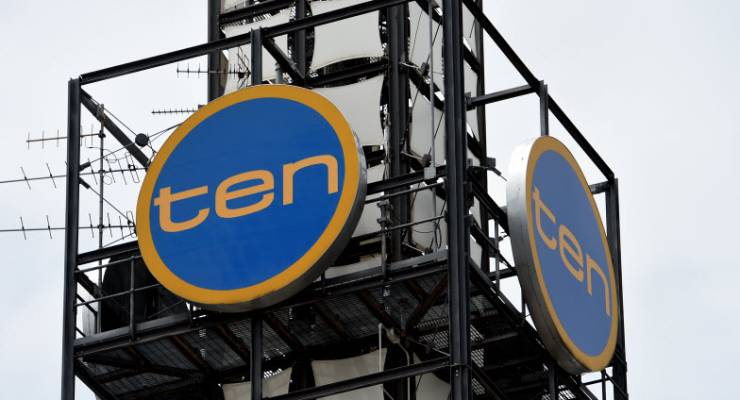
How parlous a position is the Ten Network in? Very, is the answer, and it could be about to get worse.
In last month’s profit and loss accounts, the network warned that it had slid back into losses in the February half year, with more to come for the August full year, and yet another impairment to join the long list of write-downs from the network in recent years. This was a shock to the sharemarket as Ten was seen as having recovered from its near-death experiences (the result of Lachlan Murdoch’s stewardship) from 2013 to 2015. Now it is back to being a basket case and needs to find tens of millions of dollars (possibly $100 million) to unwind a $200 million revolving credit with the Commonwealth Bank, capitalised interest and other costs and guarantor fees due to Lachlan Murdoch, James Packer and Bruce Gordon (the biggest shareholder in Ten and the Nine Entertainment Co).
Without the fresh loans or capital, Ten is running on empty. Its market value is just $221 million after the shares fell another 5%-plus on Wednesday to 65.5 cents (6.5 cents before the 10-for-one consolidation last year) — close to all-time lows.
But Fairfax Media reported Thursday morning that the government is looking at a major crackdown on gambling ads during TV sporting events as a way of getting Nick Xenophon and his group of senators to approve stalled media-ownership law changes. A ban or restricting some gambling ads could cost commercial TV networks up to $120 million a year in lost ad revenues, offset by removing licence fees, which cost the industry around $112 million a year (that’s the fee for accessing the spectrum owned by the public, so they’d be getting it for free; the fees have been halved in recent years by Labor and Coalition governments).
[Seven and Ten hit rock bottom]
But gambling ads are a rarity; they are a growing source of revenue due to market increase and the networks being able to charge more for them. That means the potential losses from a ban could become significantly larger than the licence fee cut.
The winner from such a deal would be News Corp, which, if the “two out of three” rule were removed as proposed, would be able to buy Ten (and add it to its Foxtel and Sky News broadcasting assets). And the case for the ACCC approving such a transaction would be strengthened if the participants could plausibly argue that Ten was in danger of going insolvent due to its inability to source new cash or meet its debt obligations. There’s a school of competition law thought that such an argument should be ignored — better to let a market participant fail than approve significant increases in concentration — but whether the regulator would be prepared to implement that in such a high-profile industry is an interesting question.
Interestingly, Lachlan Murdoch’s representative on the Ten board, Siobhan McKenna, resigned as a non-executive director at Ten, effective Wednesday. There was no explanation for the move, nor for the curious statement in this morning’s announcement:
“TEN understands that, for the time being, Ms McKenna’s nominating shareholder Illyria does not propose to nominate a replacement on the Board of TEN. “
That could mean several things: that Lachlan Murdoch is trying hard to distance himself from Ten; that board discussions about Ten’s future have started and that he and his family don’t want to be, or can’t be, linked to them; or that the loss and impairment write-down could very well be of a size so as to raise serious questions about Ten’s future.
McKenna has moved into News Corp proper, in the new role of group director of broadcasting. News Corp executive chairman Michael Miller said in a memo to staff Thursday, overseeing Foxtel, Fox Sports and Sky, whose boards she has all joined. Time will tell how long that means she’s not dealing with the problems of Ten.







Idiot son Lachlan certainly has the reverse Midas touch – let’s hope he fingers the Oz soon.